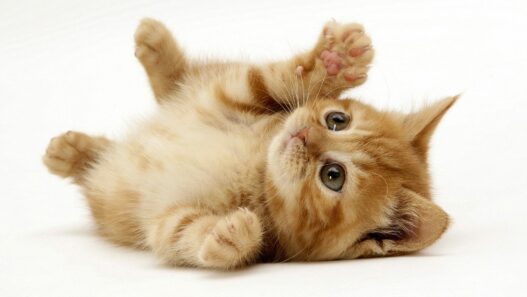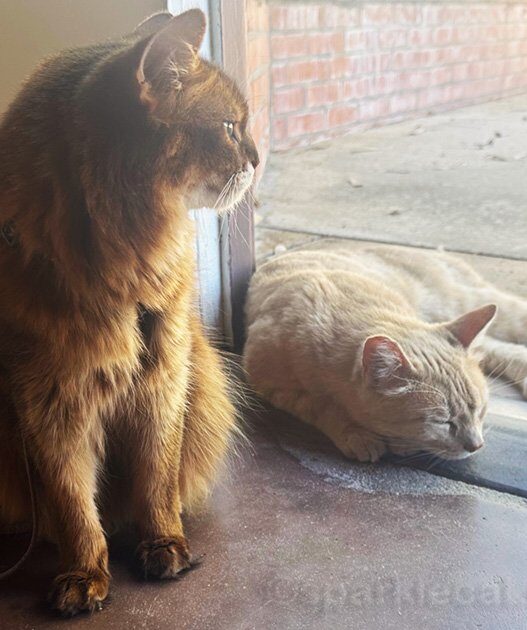Though cats can respond to catnip like a drug, it’s actually an herb belonging to the mint family. Catnip’s curious effects on our cats comes from an oil it contains called nepetalactone, which triggers varied reactions in from cats. While some are happy to just sniff the mind-altering chemical, others will eat, lick or even roll in their catnip. Because the reaction is inherited, however, not all cats respond in any way at all. In fact, up to 50 percent of our feline friends experience no change from catnip and will simply sniff it and walk away. The trait doesn’t emerge until kittens are between three and six months old, and older cats are less likely to respond, too. Large cats such lions, tigers and leopards, however, have been shown to react to catnip in similar ways to our housecats.
Researchers suspect that catnip works by triggering feline pheromones, or “happy” receptors, in your cat’s nose or brain. Once he gets a whiff, Kitty may begin rolling, rubbing, drooling or otherwise becoming hyperactive, and can even turn aggressive. Cats who eat catnip, however, seem to have the opposite reaction, becoming more sedated with their herbaceous snack. Whatever his response, your cat’s reaction will only last around 10 minutes before he loses interest in his catnip and will need a break of 30 minutes to several hours before becoming susceptible to its effects again.
Catnip isn’t just a feline obsession, however. Humans have used it for centuries as a mild sedative brewed into herbal teas. It has also been used to treat headaches, relieve cramps and insomnia, and reduce swelling associated with arthritis. Nepetalactone acts as a powerful insect repellent, too, fighting mosquitos and other pests.
Because it’s not a drug, catnip is non-addictive and safe to give to your cat. Those who are apt to eat it can make themselves sick on rare occasion, though, so be sure to give Kitty his treat in moderation. Catnip can lose its potency over time, so it’s best to store it in an airtight container in the freezer to increase its shelf life— or start your own catnip garden for you and your pet






